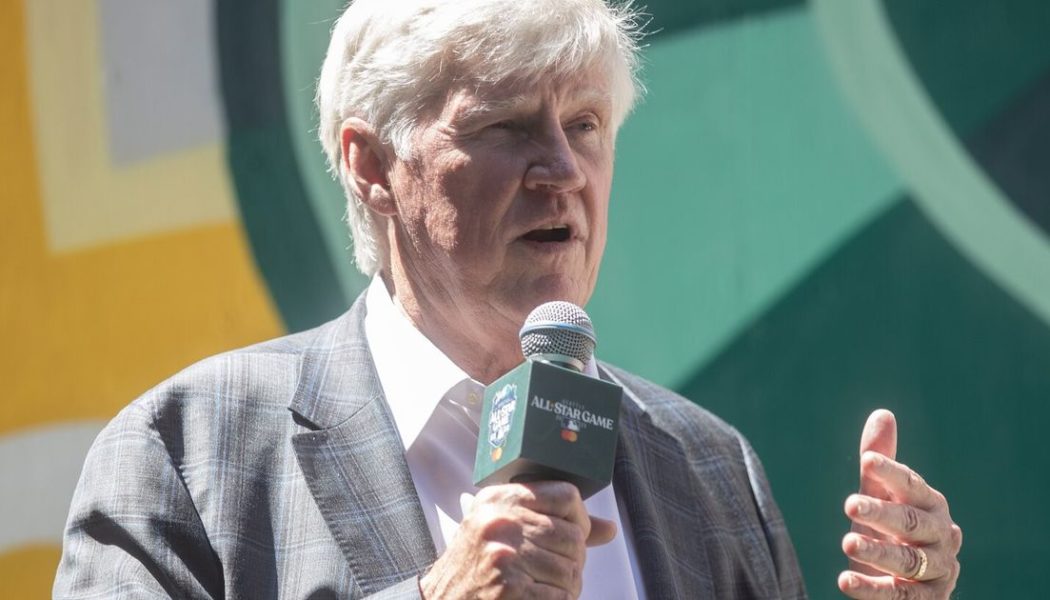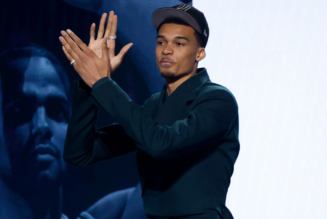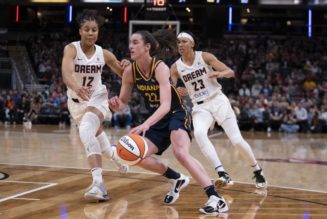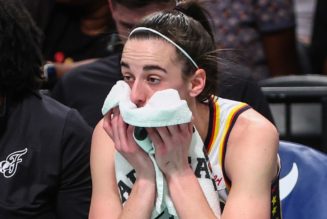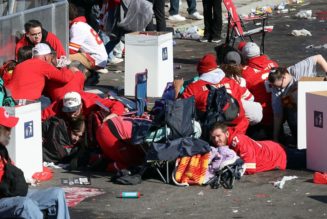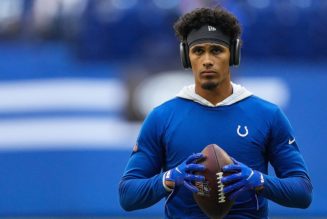
With pitchers and catchers set to report to spring training in just two months, the uncertainty surrounding one of the Seattle Mariners’ primary revenue streams — local television broadcasts — has led to an even more cautious approach in the team’s financial dealings this offseason.
The organization’s financial outlook, already a hot-button topic for a fan base growing increasingly frustrated by the team’s lack of spending, will become further clouded Jan. 1 when the Mariners’ ownership group takes complete control of its regional sports network, ROOT Sports Northwest.
John Stanton, the Mariners chairperson and managing partner, wanted to make it clear: Mariners fans still will be able to watch games through their cable provider in the same manner they always have.
“Our top priority is to ensure all Mariners fans have access to watch Mariners games from their home each night,” Stanton told The Seattle Times on Friday.
Which media entity winds up producing Mariners games — and who foots the bill for operational costs — remains an open question for Stanton and the Mariners’ ownership group.
Since 2013, the Mariners’ First Avenue Entertainment has held a majority stake — 71% — of ROOT Sports NW. FAE had been partnered with Warner Bros. Discovery, a minority stakeholder that has provided full operational support to produce Mariners games.
Warner Bros. Discovery, however, is withdrawing from all its local sports television business, and that means the Mariners’ owners will enter the new year with a 100% stake in ROOT Sports NW at a time when the regional sports network model is collapsing nationwide.
In the decade since FAE took controlling interest of ROOT Sports, Comcast subscriptions have fallen by 65% in the local market — from 3.4 million in 2013 to roughly 1.2 million now — according to one industry source with direct knowledge of the situation.
“The financial impact is real,” another industry source told The Times. “ROOT Sports is feeling that, and the Mariners are feeling that.”
That financial fallout has forced the Mariners into an unexpected quagmire.
Stanton met with ROOT Sports staffers Tuesday to discuss the future of the station, four industry sources told The Times.
Stanton promised a decision on the next steps made by the organization by mid-January but could not promise all staffers that they would retain their jobs, sources said.
The uncertainty surrounding ROOT Sports comes on the heels of Comcast Xfinity’s announcement Oct. 10 that it was nearly doubling the cost of a subscription to the regional sports network, or RSN. That is projected to make a sizable dent in viewership for Mariners games next season, and the team will not receive an increased cut from Comcast’s rate hike.
Since Comcast’s announcement, the Mariners have shed some $44 million in player salary commitments. Notably, they traded popular third baseman Eugenio Suarez to the Arizona Diamondbacks and then included former top prospect Jarred Kelenic in a trade to the Atlanta Braves to rid themselves of the contracts owed to Marco Gonzales and Evan White.
The Mariners’ payroll was roughly $140 million last year, which ranked 18th among 30 MLB teams according to USA Today, and had been expected to rise incrementally in 2024.
Stanton and the Mariners’ ownership group are weighing two options with ROOT Sports NW, as industry sources outlined.
1. The Mariners could absorb the operational costs of producing live games and maintain the status quo in 2024. The exact cost to produce games is not clear, but it would be a significant new investment. Short term, that is believed to be the Mariners’ most likely decision, a source said.
2. The Mariners could partner with Major League Baseball, which has been “aggressively pursuing” teams to join its newly formed broadcasting division. MLB took over the local broadcasts of the Diamondbacks and San Diego Padres midway through the 2023 season when those teams’ RSNs deteriorated.
MLB has said it has the capability to broadcast local games for 17 teams. When and how MLB’s centralized model becomes profitable is unclear, and the Mariners could take a wait-and-see approach with MLB.
There are advantages and disadvantages to each option, just as there are advantages and disadvantages for the Mariners in having ownership of their RSN.
“They control their own destiny right now, and that’s a good thing,” a source said. “The disadvantage is … you own the risk, too.”
ROOT Sports also owns the local media rights for the NHL’s Seattle Kraken and the NBA’s Portland Trail Blazers, adding two layers of uncertainty with the RSN’s future.
The Kraken have a multiyear contract with ROOT Sports with an annual TV rights fee said to be within the standard $15 million-$30 million range for NHL teams. Warner Bros. Discovery, as it has done with Mariners games, has been running operations to produce live Kraken games (including pregame and postgame shows).
The Blazers signed a four-year broadcast rights agreement with ROOT for an undisclosed amount in June 2021 that is scheduled to run through the 2024-25 season. The Blazers have their own in-house operations to broadcast games.
The Mariners are hardly alone in bracing for an uncertain future with their broadcasting media rights. The viability of the RSN model has crumbled in recent years as cable television subscriptions have plummeted.
For many years, the TV rights packages were a major source in subsidizing escalating player payrolls in various pro sports. That landscape is crumbling, leaving teams and leagues searching for new revenue options.
With Diamond Sports Group, the owner of Bally Sports Networks, filing for bankruptcy in March, the TV rights deals signed by 14 MLB teams were put at risk of not receiving agreed-upon payment. The Diamondbacks and Padres were the first two franchises to lose their deals, with MLB taking over their broadcasts. The Minnesota Twins’ deal with DSG expired after the season, and they are without a network. The Cleveland Guardians and World Series champion Texas Rangers could lose their TV deals in the coming months based on more bankruptcy court rulings.
Though the league has promised to recoup up to 80% of the money teams were expected to receive from Diamond Sports, the lost revenue is still forcing teams to trim payrolls.
Consequently, the Padres plan to trim their bloated payroll by $40 million-$50 million, which is why they traded star Juan Soto to the New York Yankees last week.
The Rangers have said they won’t add significant contracts to their large payroll, and the Guardians are trying to trade All-Star closer Emmanuel Clase and starting pitcher Shane Bieber to shed payroll.
The Twins are trying to reduce a $154 million payroll by $20 million-$25 million this offseason.
“It’s certainly having an impact,” Twins general manager Derek Falvey said at the recent winter meetings. “We’re in a position where our deal expired last year, and so ultimately there’s some uncertainty going forward. That’s just a fact. That’s a reality of our business. We’ve pushed on the payroll front the last few years. We’ve set team records the last two cycles. We knew there’d be some ebb and flow, and that’s ultimately impacted some by revenue uncertainty.”
Services Marketplace – Listings, Bookings & Reviews
